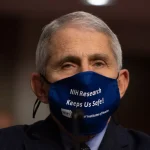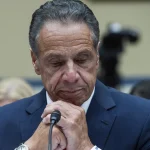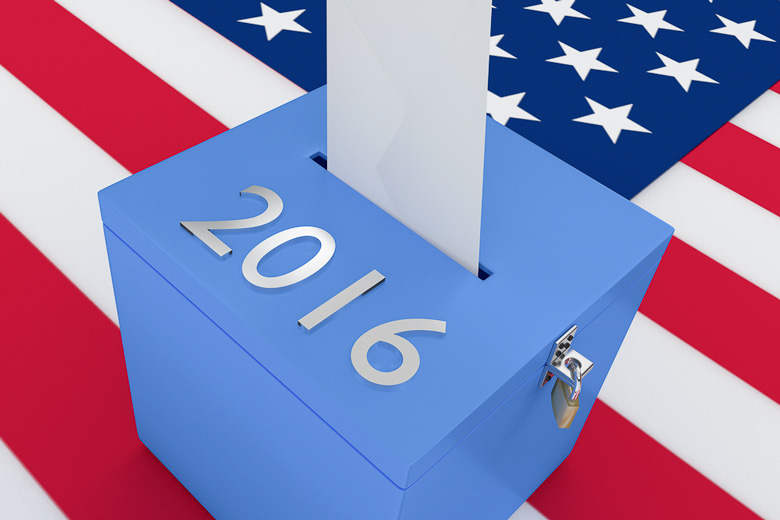The British seem to think that themselves and other countries should vote in our elections.
See the article below from independent.co.uk:
I was nine years old when I first seriously pondered the result of a US presidential election. It was 2000 and my father suggested we bet on who would win the 2000 vote – George W Bush or Al Gore. In the kitchen of our apartment in the Paris suburbs, I bet a piece of gum that it would be Gore. Two months later, the Supreme Court decided otherwise, and I didn’t realise until many years later how close I had come to being right.
Perhaps that’s when it originated: the idea that maybe other countries shouldn’t just be left wringing their hands every four years and waiting to see who US citizens had chosen to appoint as (to speak like a White House staffer on Scandal) the leader of the Free World.
And perhaps that seed of an idea continued to gestate in 2004, when we waited to find out whether John Kerry would deprive George W Bush of a second term; then in 2008, when T-shirts bearing Barack Obama’s red and blue “Hope” poster started cropping up on the streets of the French capital; and again in 2012, when we learned the names of his Republican challengers.
Then, of course, came November 2016, by which time I had moved from my native France to the US. I came home from work at approximately four the morning after the election and spent an hour or two on the phone with my mother (it was mid-morning in Paris) talking about Donald Trump’s ascent to power and what it meant for America as well as for the world.
One election after the next, we have seen how much the results of the US presidential vote impact not just the 50 states, but the rest of the planet too. And if the future of foreign countries is shaped to a significant extent by what goes on on US Election Day, shouldn’t they get a say in who gets to lead the most powerful nation in the world for the next four years?
In other words: shouldn’t foreign countries have a right to vote in the US presidential election?
I know, I know. The idea sounds so absurd, so outrageous that it’s hard to know where to begin your rebuttal. I have floated it around, timidly, in bars and at various dinner parties over the years, and let me tell you – it’s hard to get people to agree with me. And I get it: it’s never been done. I will probably never be done. But last week, a terrorist killed 50 people in two mosques in Christchurch, New Zealand. The alleged gunman, who had referred to himself as a white nationalist, viewed Donald Trump as “a symbol of renewed white identity”. So, yes, I think it’s high time to acknowledge the fact that what happens in the US has immense, tangible consequences on the rest of the world, and I am tired of crossing my fingers hoping that American voters will do the right thing.
I remember the Iraq war debate, and how George W Bush expressed his disappointment at my country and others for deciding not to align with US forces – while insisting that he was “not mad” we had decided to opt out of the invasion. I remember our collective bewilderment at the term “freedom fries”, and I remember lacking clarity on some of the details, on account of being 11 years old at the time. But the feeling that the US, more than any other nation, shapes our collective future has only grown clearer and stronger since.
Christian university rebranding DEI to evade Trump order, enroll illegals, Tennessee rep says
Mike Huckabee Threatens to Declare Israel ‘No Longer Welcoming’ to Christian Organizations After ‘Shocking’ Policy Change
Former Voice of America Staffer Charged Over Alleged Death Threats Against Marjorie Taylor Greene
NIH still blaming FOIA delays on the pandemic
New York settles Andrew Cuomo sexual harassment case for nearly $500,000
Americans detained in Venezuela freed and returning home after prisoner exchange
Trump sues Wall Street Journal for libel after Epstein birthday letter story
Trump vows to make US ‘crypto capital of the planet,’ signs GENIUS Act into law
Illegal pleads guilty to impregnating his own daughter at blue state migrant shelter
Watch: Rare ‘Firenado’ Captured on Video as it Cuts a Swath of Destruction
FBI captures final illegal immigrant inmate who escaped ICE facility in New Jersey
Illegal Alien Claimed She Was Illegally Kidnapped by ICE – Then the Surveillance Footage Was Located
Germany admits Europeans were ‘free riders’ on defense and national security
Border Patrol Hits Jackpot in Raid on California Home Depot
Missing mom’s convicted killer claims boyfriend tainted his trial
Perhaps it helps to imagine America as the pot in which tomorrow’s ideas are brewed, for better or worse. Perhaps it helps, too, to look at the more tangible signs of how US politics contribute to shaping all of our lives. The most convincing example may be global warming, and Donald Trump’s overt skepticism when it comes to climate change. In January this year, the president of the world’s most powerful nation infamously tweeted: “In the beautiful Midwest, windchill temperatures are reaching minus 60 degrees, the coldest ever recorded. In coming days, expected to get even colder. People can’t last outside even for minutes. What the hell is going on with Global Waming [sic]? Please come back fast, we need you!”
It goes without saying that whatever the US does or does not do to limit the effects of global warming impacts every single being, human or otherwise, on this planet.
Then comes the economy: in June last year, we were warned that tensions between the US and its main trading partners could precipitate global trade turmoil similar in scale to the 2008 financial crisis. Whoever gets to sit in the Oval Office, then, plays a major role in shaping the state of our wallets as well as the state of the planet. Is it really that outrageous that people around the world might want to have a say on who runs the show?
I am, of course, aware that the US is extremely unlikely to go along with my idea. This isn’t a country that’s particularly known for avidly seeking external input. And of course, there’s the idea that the right to vote is intrinsically tied to residence, and that those who don’t live in a given country aren’t qualified to make a call on what goes in said country.
Except things are more complicated, and more nuanced than that. Take, for example, the idea that living in a country is a condition to having the right to vote there. Permanent residents such as myself, also known as green card holders (also known as people who aren’t US citizens but live and work in the US full-time) pay the same income tax as US citizens, but don’t get to vote. Naturally, US citizens (like citizens of many other countries) still get to vote for their president even if they permanently move to a different country. All this to say: there is an established disequilibrium between who gets to vote in the US presidential election and who arguably has the most skin in the game.
Full Article: here.
























